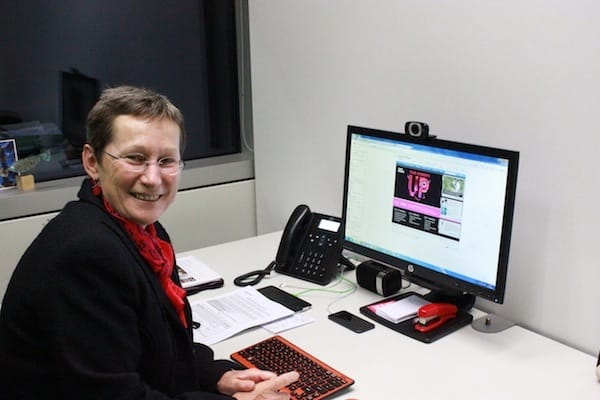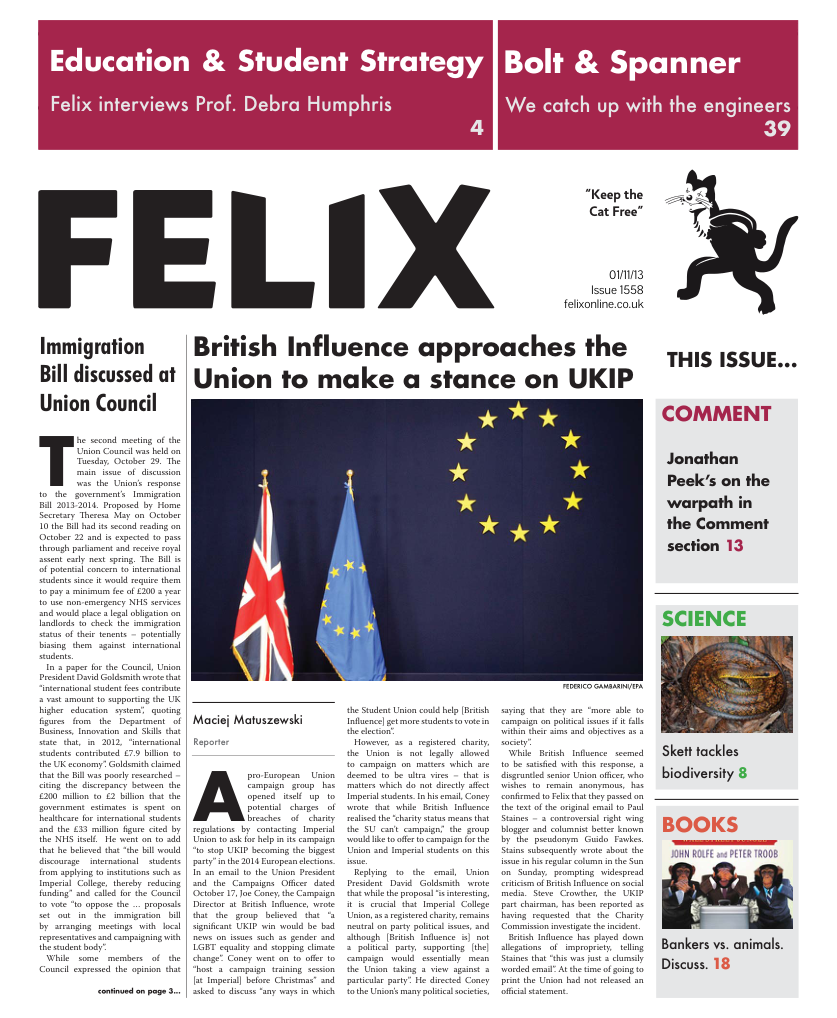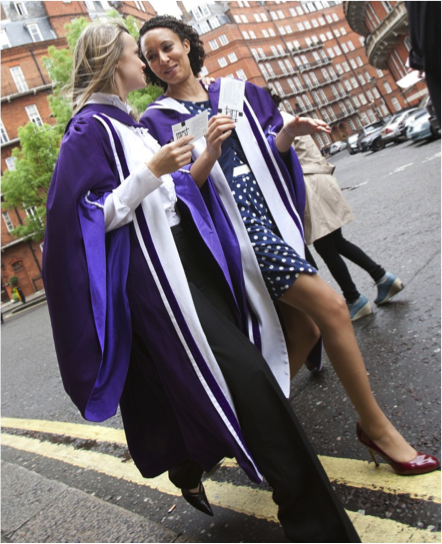Interview: Introducing the Education and Student Strategy
Felix talks shop with the Vice-Provost Education

Earlier this week Felix caught up with Professor Debra Humphris, Vice Provost (Education) and had a discussion about the new Education and Student Strategy that was released on Thursday.
Felix: So, you’re releasing the Education Student Strategy tomorrow?
Yes. I started it in December last year, we started the process of engaging staff, students and alumni in thinking about an Education Student Strategy to give us a framework and a set of actions to continually enhance and take forward our education student experience. So having gone through a consultation process, having got people’s great ideas, having honed that hopefully into a green paper. Having gone back to the community to say: “What do you think of this? What are your comments? Having read all of the input and having events with students and with staff town hall meetings, we then arrived at this Education Student Strategy, which went to what was formerly the Management Board back in June, and has then been to Provost board again just to double check. And then over the summer we’ve been working to set up working groups around specific actions, so we’ve now got a framework for action for the college and so that all goes live tomorrow on the website. So what we’ve tried to do with the website is have a website where you can click and you can get to the information. We’ve put it there. We’ve put links to other sources related to particular actions. We won’t do everything all at once because there’s too much to do all at once. So, hopefully it’s both a repository of information about what’s going on. It should also be a two-way format in terms of people who want to highlight great ideas, because the world’s moving at such a pace: people who want to get involved, people who’ve got views about particular developments. It’s got to be a two-way dialogue.
F. So, what was there beforehand, was there anything at all before you started this back in December?
The College has always had a strategy. If you go back to the 2010-14 strategy there are some higher-level strategic ambitions in there about education. There’s really helpfully an issue about performance: that the College should be in the top three of all the leading education indicators, which, if you take that and apply to say the NSS, that’s really challenging, and so what I hope I’ve done with this is get a bit more focused and set out some really specific pieces of work that we need to do. So back in 2009 there were no MOOCs [Massive Open Online Courses], there was no plan on the horizon about (as we knew it then) for the rise in undergraduate tuition fees. So much has happened just in that period, a strategy has got to be a living document.
F: So, are you planning on incorporating changes as more feedback comes in from people?
So for example, there’s a workgroup with a commitment to streamline and rationalise surveys, so that every time we ask you a question as a student you should know what we do with that, what we’ve found, and what we’re doing as a consequence. I’m of the view that less is more, fewer surveys followed up more diligently and reported back in terms of actions is probably more worthwhile than thousands of surveys that you never hear… that’s not valuing your feedback. So, that group has started and undoubtedly there will be changes that will come along that we’ll need to adapt to, there’s a national review of the NSS, so we don’t know what will come out of that next year. So, you have to keep these things live and responsive, but you have to set a direction and start getting on with some really specific actions.
F: So, it is very easy for people to give feedback, is that via the website?
Yes, so there’s going to be one email. So for every action there will be a page that you can click through to find out about. So if you take this one about “Support students to return to their schools and college and employers to share their experiences of college.” So this came from Lewis, a student in Earth Science who said we should do more of this because it really works for kids and teachers and schools. And actually, we like to go and tell our story. So, Lorraine Craig, who started this off in the school of Earth Sciences, has kindly agreed to lead that group. And what we’re going to do is gradually increase this because we must do it on a quality basis, its no good sending 900 students back to their schools. We also need to think about the schools that we focus on because if this about inspiring the next generation, there are some schools where we could probably could do a bit more of that than in others, so we need to connect that up with our outreach. … So on the webpage, we either click on that, and that will take you to a page which is just about that action. You’ll be able to find out who’s involved, terms of reference of the group, what progress they’re making and any links to other sources, keeping people looking out the window. “Actually this is really good that we do this, but actually have you seen what the University of XYZ does? We could be doing that. So, under each of the four objectives there will be links to all the actions so that you can find out anything that’s going on and there will be an email where anybody who’s got an idea or a comment, and those comments (as in the consultation) will range from the highly supportive and encouraging to the… more colourful and more anatomical.
F: Oh dear.
Well, you know, all of life is here.
F. So one thing that I’m picking up is that you’re very keen on making it transparent and easy. Is this something that would be possible to get throughout all college?
Yes, this is a college-wide strategy, this is the framework we’ve set all College. The job now is to engage everybody in the community, staff, students, and alumni to help put their shoulder to the wheel and move us forward.
F: Personally I think that with some of the issues you’ve raised, especially the NSS, it’s important that we focus on things and make them better instead of just complaining which is what some students currently do at times. So in terms of boosting student morale, what are your thoughts in regards to that?
So, through all of this, what I’ve been really clear about (and actually there’s a statement right at the beginning [of the document]), are the underpinning assumptions around this. This strategy is built on three assumptions, one is our disciplinary strength in science and engineering and our commitment to a research-led education that is practice-based. Another assumption is a clear commitment to strong partnership with Imperial College Union, we do this and we do this together, and the recognition that the educational experience of our students is shaped by all members of the college community: staff, students and alumni. How Mrs Patel at the student hub speaks and deals with you [and treats you] is as important as professor “Wonderful Wonderful” giving her lecture on molecular something or other. We are all one community and building that respect for everybody’s contribution is really important. Everybody has brilliant ideas, I don’t know anybody who comes to work at Imperial College not wanting to do a great day’s work and I would be mad to shut off a route by which people might say “Do you know what, I had a really great idea, do you know that we can do X, Y, and Z”. Genius, you can’t see the wood for the trees, so engaging people is really important.
F: Almost wrapping up, looking forward to the future, both in terms of this document and future strategy documents, is there a particular timeline that we can look at for changes, and then for the future, what are you thinking?
So, again, in January the College will start the process of refreshing it’s current strategy (it will probably be the 2014 to 2020 strategy), so we’ll start this process and this will get wound into it because essentially we’ve done the education and student piece. We might refresh it on the way, I wouldn’t ever rule that out, and then these actions will take differing amounts of time. So in terms of the education foresight process, the challenge I’m going to put before colleagues is: Let’s think now about the 2020 graduate intake, because they are alive. What is it we’re going to be delivering in 2020, we’ve got MOOCs, we’ve got ‘digital’, we’ve got interdisciplinary research and disciplines merging, challenges all over the world, increasing globalisation of higher education, three-year olds who do this [mimics a touchscreen gesture] and think that televisions [are touchscreen]. What will they be like when they arrive in 2020? How do we prepare for that? And we need to have a vision about that because if we’re going to start the work to get there we have to start now because we haven’t got many years left to get to that point.
F. OK. One last question. Is there any particular part of the strategy that you’re really keen on, or is it the whole thing? Is there any one priority?
No, I think it wouldn’t be in here if it wasn’t important to the college. For me, it’s all important, it’s about students, it’s about there experience, it’s also about our staff and it’s about the infrastructure and creating the environment to which to deliver world, so you can’t have one bit on it’s own.
F. OK. Well, thank you very much for your time.







